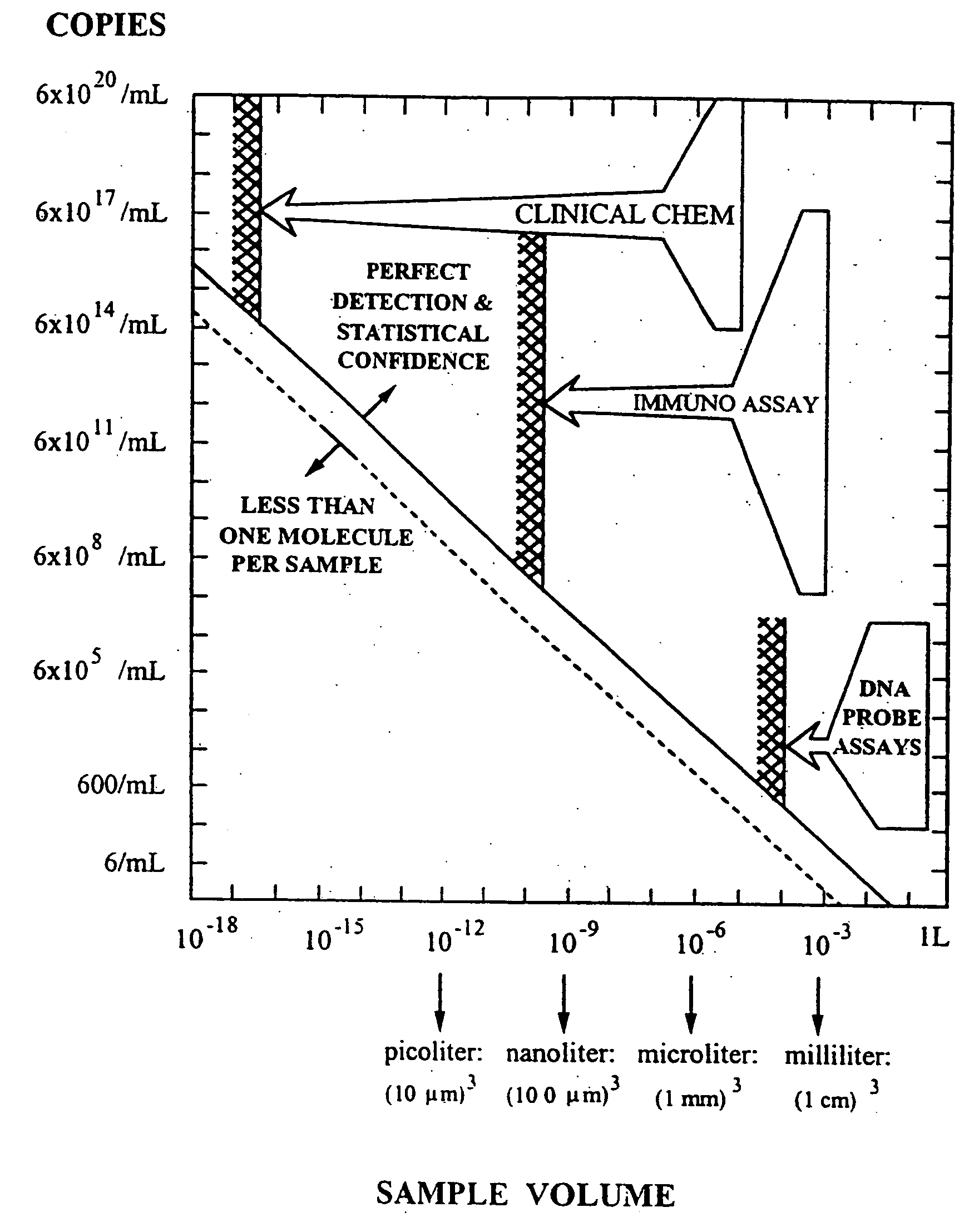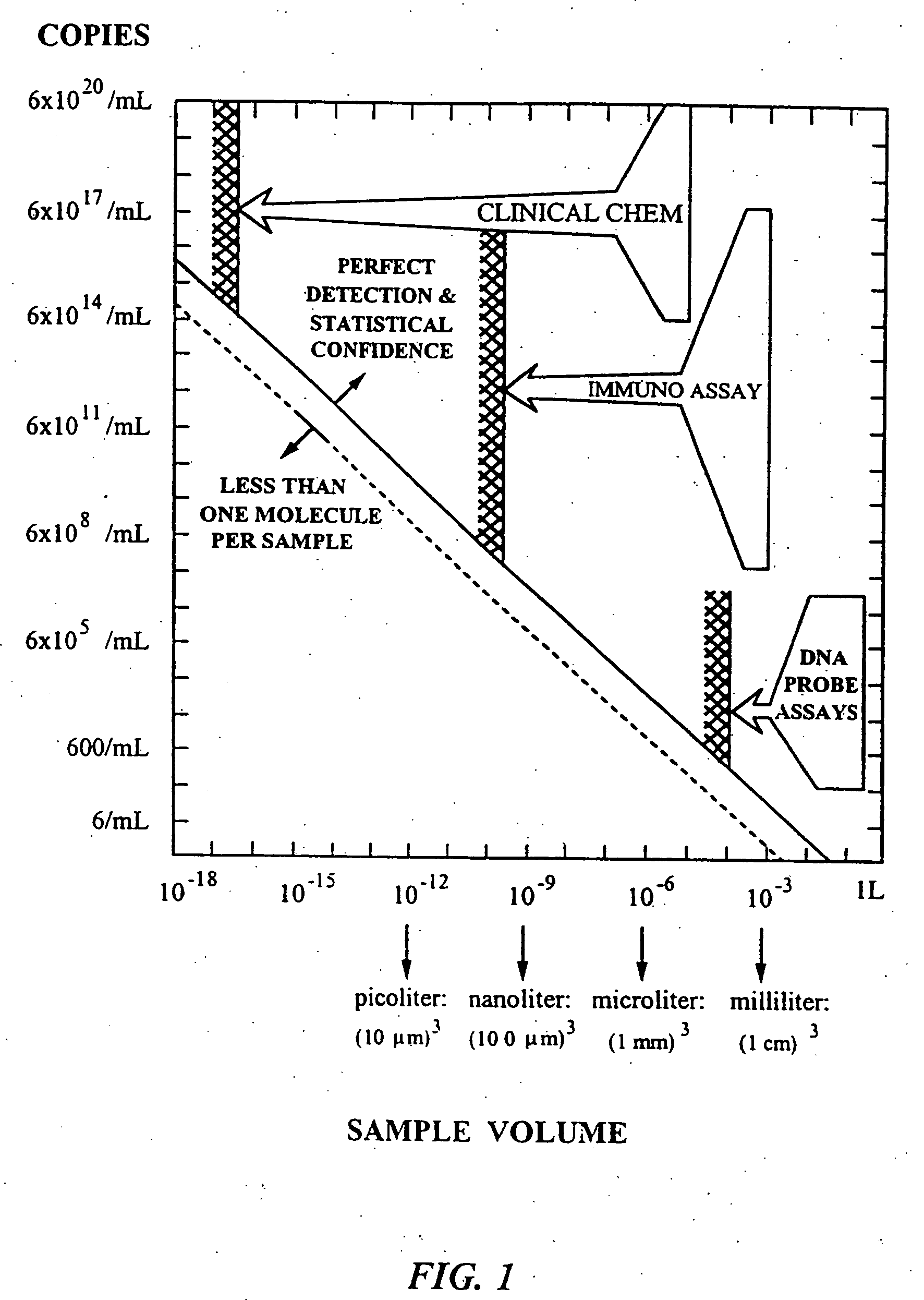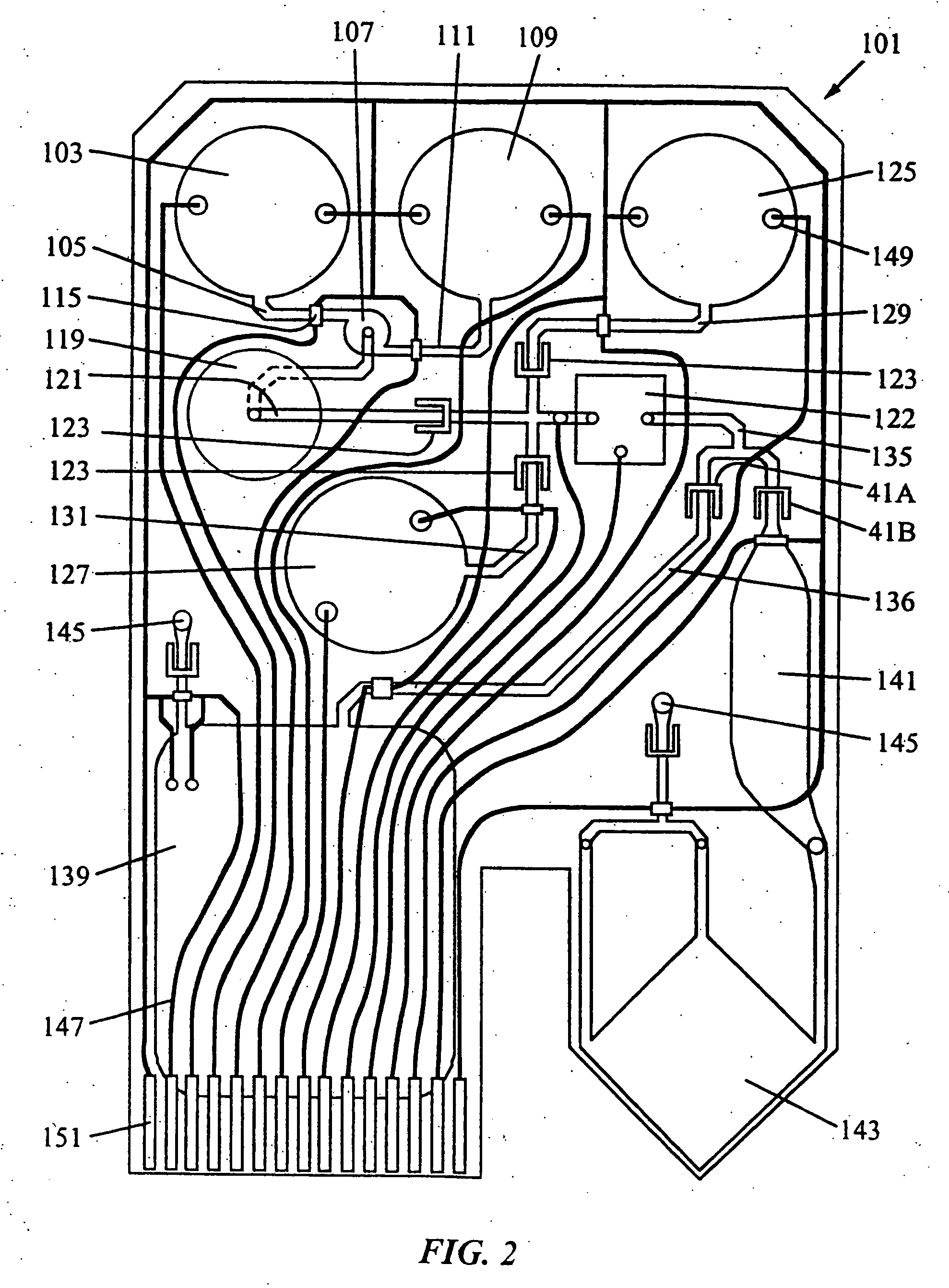Method for separating analyte from a sample
a technology of analyte and sample, applied in the field of method for separating analyte from a sample, can solve the problems of complex fluidic assembly processing algorithms, limited volume of fluid sample which can be processed, and complex contemporary biomedical processing instruments. , to achieve the effect of superior blend of efficiency and convenience in design, manufacture and us
- Summary
- Abstract
- Description
- Claims
- Application Information
AI Technical Summary
Benefits of technology
Problems solved by technology
Method used
Image
Examples
Embodiment Construction
[0042] The present invention provides a cartridge for performing various operations on a fluid sample as the sample flows through a series of interconnected, interactive regions within the cartridge. The regions are located sequentially along a fluid flow path through the cartridge, so that a segment of the fluid stream is exposed to a specific operation at one region, then another operation at the next region, etc. The sample flows through the interactive regions so that it is simultaneously in contact with more than one region at a given time. The sample flow is preferably continuous, so that the operations at each region occur simultaneously and sequentially on the fluid stream.
[0043] The cartridges of the present invention allow for significantly improved processing of a fluid sample for the detection and / or analysis of chemical components in the sample, such as biological molecules. A pioneering improvement over the prior art is the ability to rapidly process a fluid sample th...
PUM
| Property | Measurement | Unit |
|---|---|---|
| volume | aaaaa | aaaaa |
| flow rate | aaaaa | aaaaa |
| ionic strength | aaaaa | aaaaa |
Abstract
Description
Claims
Application Information
 Login to View More
Login to View More - R&D
- Intellectual Property
- Life Sciences
- Materials
- Tech Scout
- Unparalleled Data Quality
- Higher Quality Content
- 60% Fewer Hallucinations
Browse by: Latest US Patents, China's latest patents, Technical Efficacy Thesaurus, Application Domain, Technology Topic, Popular Technical Reports.
© 2025 PatSnap. All rights reserved.Legal|Privacy policy|Modern Slavery Act Transparency Statement|Sitemap|About US| Contact US: help@patsnap.com



